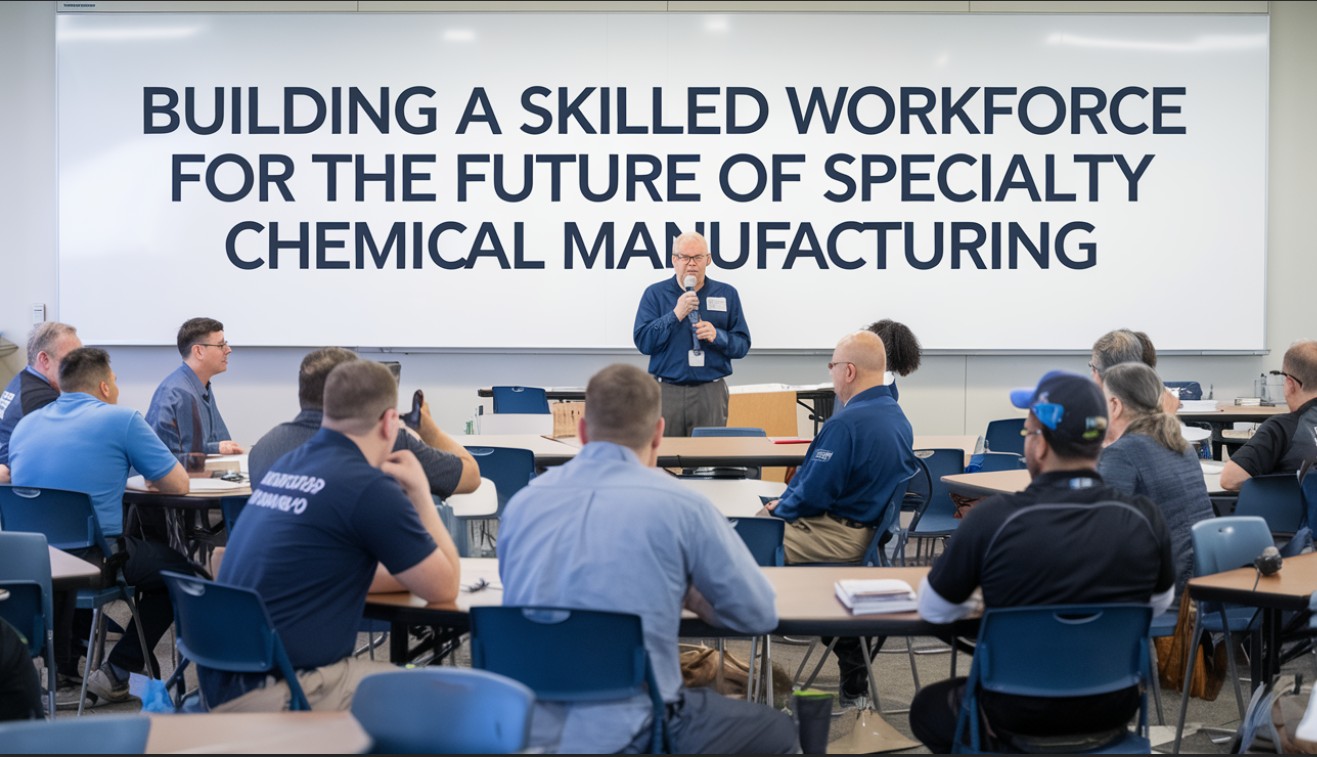
Building a Skilled Workforce for Specialty Chemical Manufacturing : The complexity expected here is a changing world of specialty chemicals. It is certainly more than an engine for the entire pharmaceutical-agriculture-electronics-construction spectrum. It promises more in the future for this critical industry. Between 2026 and 2030, technological transformations, sustainability needs, and evolving market demands are expected to drive significant trends in the industry. Let’s explore expert predictions on the changes ahead for manufacturers and end-users.
Sustainability in Focus: The New Green Revolution in Specialty Chemicals
Sustainability is the most important issue facing the future of specialty chemical manufacturing. Unlike the “green” product niche, sustainability is becoming imperative for doing more mainline business.
No more feedstocks based on old petrol, one expects, but rather on bio-based alternatives. This investment footed enormous R&D bills looking to develop speciality chemicals from renewable resources such as biomass, agricultural wastes, or even algae. This is a substitute for conventional finite resources as well as less carbon footprint production.
Circular Economy Principles: Circular economy, in which waste is minimized and resources are reused, is on its feet. Manufacturers will now devote greater time in developing closed-loop systems, recycling chemicals, and end-of-life recovery of products.
Green Chemistry and Catalysis: Famous innovative green chemistry principles, such as atom economy and safe solvents, will gain mass acceptability.
Repression of Regulation and Consumer Demand: Tougher environmental measures and growing consumer interest in sustainability will pressure firms to act.
Read our blogs: How Chemical Manufacturing is Adapting to Sustainable Chemical Manufacturing Practices
Digital Transformation: Industry 4.0 and Beyond
Cross-infrastructural change associated with the revolution of Industry 4.0 will manufacture new production systems. The change from this revolution is also affecting speciality chemicals.
Robotics and Automation of the Next Level: Expect higher production process automation, with repetitive and hazardous tasks taken up by robots. Therefore, we improve efficiency, safety, and savings.
Data Analytics and AI: It moves toward using artificial intelligence and machine learning to assess production processes, predict equipment failures, and improve product quality. Value-added information about market trends and customer needs will be translated into more informed decisions through data analytics.
Digital Twins and Process Simulation: Digital twins of all physical assets and processes will allow for them.
Internet of Things (IoT) and Sensor Technology: Tens of thousands of IoT-enabled sensors will be monitoring real-time critical parameters as input to process control and optimization to produce efficient and responsive production.
3D Printing and Additive Manufacturing: This will also facilitate on-demand production of customized chemicals and materials for specialized products. This is useful for applications whose geometries are too complex or for very small production runs.
Personalized and High-Performance Chemicals: Fit to Changing Needs of the Market
The requirement for personalized and high-performance chemicals will surely escalate as industries become more specialized as consumers demand and as they grow ever more particular.
Tailor-Made Products: Increasingly, manufacturers will develop appropriate chemical formulations to be customized according to customers’ specific requirements. This is going to call for an entire revolution in flexibility and agility by production processes.
Advanced Materials: Demand will further escalate in areas linked to high-performance materials with improved properties, strength, durability, and conductivity, creating more innovative ideas in polymers, composites, and nanomaterials.
Specialty chemicals for emerging technologies: Demand for advanced materials will rise, focusing on high-performance characteristics like strength, durability, and conductivity, leading to innovations in polymers, composites, and nanomaterials.
Pharmaceuticals and Life Sciences: Expected to become important arenas for future market growth in specialty chemicals, especially those relating to active and advanced pharmaceutical ingredients (APIs), excipients, and other chemical substances of high purity. The personalized medicines trend will drive the demand for custom formulations.
Related Books: Business books on several industries
Geopolitical Shift and Supply Chain Resilience
The world is constantly changing, and with this come great changes that could affect the specialty chemical industry as well.
Supply Chain Diversification: Such things became clear when assessing the impact of the COVID-19 pandemic on the world. The concern of manufacturers will increase towards less dependence on single sources and resilience in the diversification of their supply chains.
Regionalization and localization: There is a growing trend as far as the regionalization and localization of production is concerned, with companies establishing their manufacturing facilities closer to their end-use customers. Reduced transportation costs and improved security in the supply chain are expected.
Geopolitical Risks and Trade Policies: Geopolitical dictates such as trade disputes and political instability will be leading most parts of the world with this consideration of a global concern.
Change and Innovation
Building a Skilled Workforce for Specialty Chemical Manufacturing : Transformational is the specialty chemical industry poised on the edge of transformation. Companies adopting sustainability, digitalization, and innovation would be well-positioned to flourish in the future. The future would witness:
- A need for a stronger focus on sustainability and circular economy principles.
- Accelerate digital adoption and the uptake of Industry 4.0 solutions.
- Take up a more active stance toward making personalized and high-performance specialty chemical demand.
- A shifting emphasis on resilience and diversification of supply chains.
- A highly skilled workforce, robustly adaptable workforce.
Though there are many obstacles in the way, there are also numerous benefits for those who are prepared to innovate and adapt as we move forward into 2026 and beyond to 2030. It is possible to guarantee that this specialty chemical industry will continue to contribute significantly to global economic growth and the improvement of people’s quality of life by looking forward and embracing new trends.






